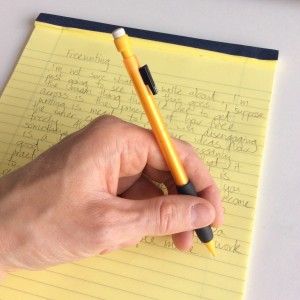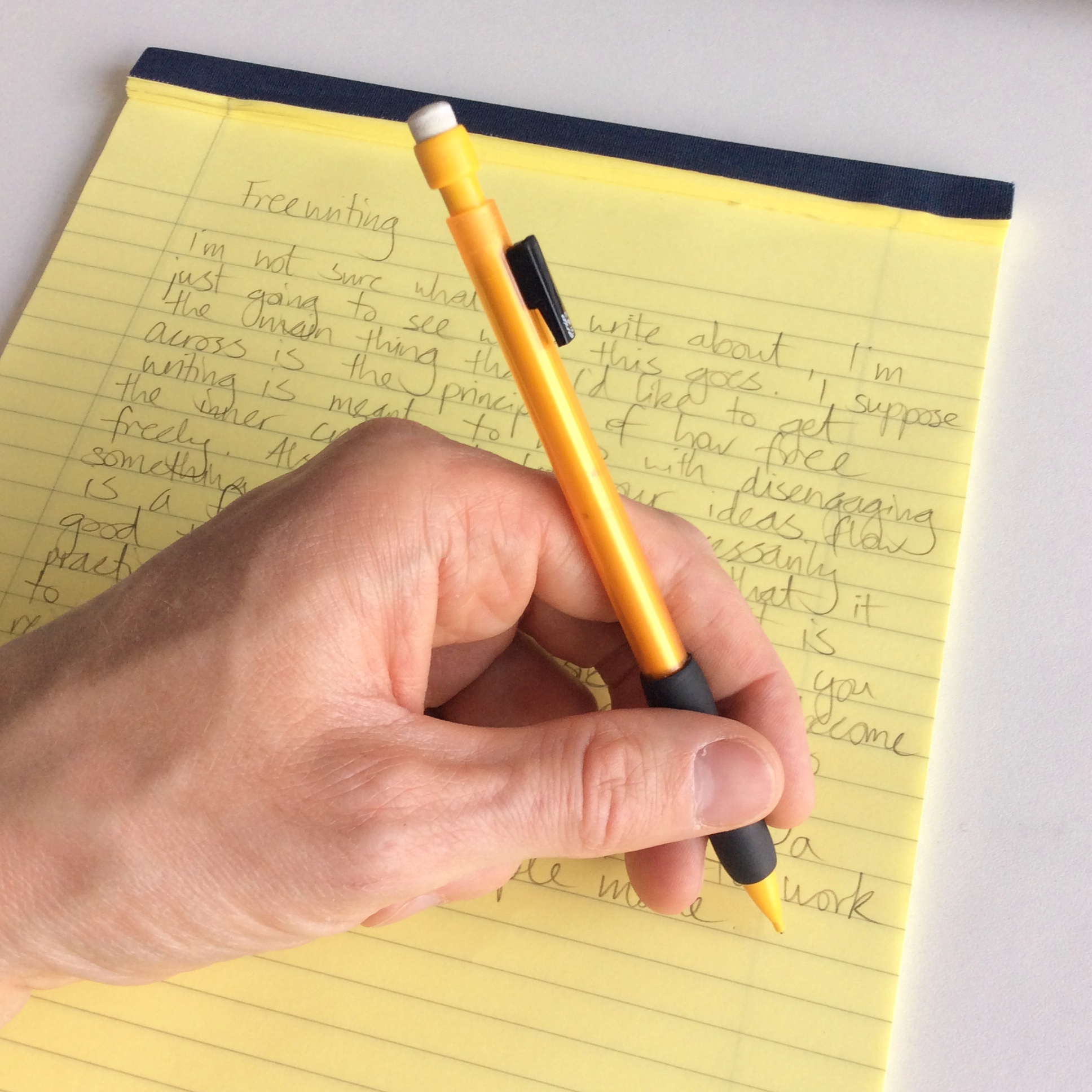Last week the first Blog Writing Group sessions took place. The group meets monthly, on the first Wednesday and Thursday of the month and all staff are welcome to join. In each session, a different writing strategy is introduced, used and discussed. In addition, we go into more depth about good blogging practice. Each month there will be a blog post outlining the writing strategy used and what was discussed in the group. This is the first of these blog posts.

In this first session, we used the Freewriting technique popularised by Peter Elbow in his book Writing without Teachers (1973). Often we can block ourselves from writing, with thoughts such as, “I don’t know what to write”; “I’m not sure what I’ve got to say is relevant”; “Nobody will be interested in what I’ve got to write”; “Where do I begin?” Freewriting aims to release you from your internal critic – “free from the burden of evaluation, correctness and judgement” (Lieske, no date). Elbow (1973) sees this activity as a regular exercise, akin to going to the gym, to help you improve your writing.
Why use it?
- To generate ideas
- To get over ‘writer’s block’
- To develop ideas
Guidelines for Freewriting
- Set yourself a time limit. Start with 10 minutes. Over time you can increase this.
- Don’t stop writing. Don’t worry about spelling, grammar or punctuation. Write whatever is in your head on the page. If you can’t think of what to say, write “I don’t know what to write.”
- Don’t rush, but don’t write too slowly either.
- Don’t edit. Avoid thinking too carefully about what the next word should be and don’t worry if it doesn’t connect with what you were saying before. (Lieske, no date)
After doing some Freewriting, we discussed our experiences of using the strategy. Generally, people were surprised at how quickly time passed when writing. Initially, some found it difficult not to go back and edit. One participant commented that they had found it better doing writing in a room together with others. This prompted an interesting discussion about how we approach writing when it doesn’t have a direct purpose; there are no consequences if you don’t do it. We are encouraged to share good practice. However, often we have other priorities that mean that we end up not communicating these ideas with our colleagues.
This is one role that the Blog Writing Group aims to play: to provide a time and space where you can experiment with your writing and explore ideas that you can then share with colleagues.
If this appeals to you, come to the next sessions on Wednesday 3rd and Thursday 4th August from 13:00 – 14:00 in the LEaD Training room (B310). The same approach will be covered in each session, so you can choose the day which suits you best.
Do you have a strategy that helps you with your writing? If you would like to share it with the Blog Writing Group, email me at – daniel.sansome@city.ac.uk.
References
Elbow, P. (1973) Freewriting. Available at: http://faculty.buffalostate.edu/wahlstrl/eng309/Freewriting.pdf. (Accessed: 7 July 2016).
Lieske, M. (no date) Freewriting Exercises. Available at: http://castle.eiu.edu/writing/freewritingexercises.pdf. (Accessed: 7 July 2016).
More links about Freewriting
Donovan, M. (2015) Creative Writing Practices: Free Writing. Available at: http://www.writingforward.com/creative-writing/writing-practices-free-writing. (Accessed: 7 July 2016).
Academic Coaching & Writing LLC (no date) A Guide to Doing “Free-Writing” Exercises to Generate Ideas and Enhance Writing Skills. Available at: http://www.academiccoachingandwriting.org/assets/uploads/Free-Writing_Exercises_to_Generate_Ideas.pdf. (Accessed: 7 July 2016).


Thanks for the write-up and all the extra links here, Dan – plenty to explore!
I found freewriting quite liberating as I often deliberate so much over a piece of writing because I want to get it right. Being able to ‘just write’ without any concern for whether I was following a logical order or was grammatically accurate enabled me to just generate some written content. Once you’ve got something down, you have raw material to work with, but from a writing point of view, there can be little more terrifying than a blank page!
Comparing writing in this way to habits such as ‘going to the gym’ was a very useful approach too, I thought.
Looking forward to the next ones!
I like this short post, thanks for posting Dan, I enjoyed your lunch time workshop too. These types of tips could make a PDF guide for our students or anyone and could be made available from our new LEaD website?
Thanks, Santanu. Good idea. Great minds think alike! Currently, the Academic Learning Support team are working on a series of guides for students that will be available from the LEaD website. If you have any tips that you think would be interesting, you can always email me.